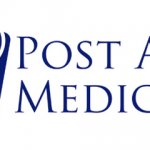An infographic published in JCO Oncology Practice (online May 12, 2020; doi:10.1200/OP.20.00179) highlights updates to the American Society of Clinical Oncology (ASCO) Patient-Centered Oncology Payment (PCOP) model.
PCOP is an alternative payment model originally designed in 2015 to support transformation in cancer care delivery and reimbursement while ensuring patients with cancer have access to high-quality care. In late 2019, ASCO released a revision of PCOP that further reflected stakeholder feedback from physicians, administrators, payers, and employers.
The new infographic highlights the recent changes to the model, outlines paths to implementing the model, and illustrates the model’s community-wide approach to delivering care.
Among the primary approaches to transforming cancer care in the model are improved care delivery and coordination through an oncology medical home framework, which improves outcomes and reduces costs; a performance-based reimbursement system that relies on patient-centered standards and may transition to bundled payments; and use of clinical pathways that adhere to ASCO criteria to consistently deliver high-quality care.
Want to publish your own articles on DistilINFO Publications?
Send us an email, we will get in touch with you.
The PCOP infographic also illustrates the two tracks for practices to follow based on where they are in the transition to providing value-based care. Track 1 (for practices new to value-based care) shows the basic standards practices must meet for care delivery requirements, including patient engagement, access to care, comprehensive team-based care, quality improvement, safety, and use of certified EHR technology. These practices will continue to receive typical fee-for-service reimbursement in addition to care management amounts. Track 2 (for practices more experienced in value-based care) shows that PCOP communities may choose to participate in Consolidated Payments for Oncology Care (CPOC). Practices may elect to bundle either 50% or 100% of the value of specified services, 90% of bundled amounts will be guaranteed under CPOC, and 10% of bundled amounts will be subject to performance adjustments based on practices’ Aggregate Performance Scores.
Furthermore, the infographic highlights ASCO’s real-world modeling, which projects that PCOP could cut costs by up to 8% across the health care system. Adherence to high-quality clinical pathways will provide significant savings, according to the infographic, including cost of therapy cuts by 5% to 37%. Compliance with pathways will lower supportive care drug, diagnostic, and hospitalization costs.
Fifty-one percent of avoidable hospital admissions will be reduced through use of oncology medical homes like PCOP, the infographic adds.—Zachary Bessette
Source: Journal of Clinical Pathways








